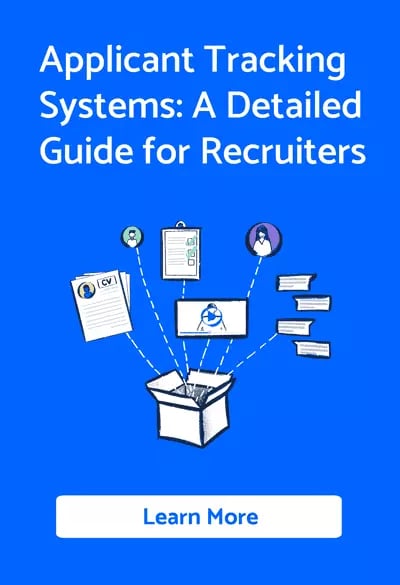Building a successful startup is like assembling a complex puzzle - each piece, or in this case, each employee, must fit perfectly to create a cohesive and efficient whole.
As a founder, the task of finding the right talent for your growing team can be both exciting and daunting. After all, the people you bring on board will shape the future of your company and play a crucial role in its success or failure.
To help you navigate the often-turbulent waters of startup hiring, we've compiled a list of nine top tips to ensure you find the perfect fit for your team.
1. Define your company culture and values
Before you even begin the hiring process, it's essential to have a clear understanding of your company's culture and values. These guiding principles will serve as a compass, helping you identify candidates who not only possess the necessary skills but also align with your startup's mission and vision. Consider the following:
- What are the core values that drive your company?
- What kind of work environment do you want to foster?
- What attributes do your current employees embody, and how can you find more people like them?
By answering these questions, you'll create a strong foundation for your hiring process and attract candidates who will thrive within your organisation. Using HR software will also help you incorporate strong culture and values. According to a recent survey by Glassdoor, 77% of adults consider a company's culture before applying for a job, and 56% rank company culture as more important than salary when it comes to job satisfaction. Clearly, defining your startup's culture is not only crucial for attracting top talent but also for retaining them in the long run.
2. Write compelling job descriptions
Once you've established your company culture and values, it's time to craft job descriptions that accurately reflect your startup's needs and appeal to the right candidates. A well-written job description should include the following elements:
- A clear and concise title that accurately reflects the role
- An overview of your company and its mission
- Key responsibilities and duties associated with the position
- Required skills, qualifications, and experience
- Benefits and perks offered by your startup
When writing your job descriptions, be sure to use language that aligns with your company culture and values. This will help attract candidates who not only possess the necessary skills but also share your startup's vision. Additionally, consider highlighting any unique aspects of your company, such as flexible working arrangements, opportunities for growth, or innovative projects.
According to a study by the Harvard Business Review, job listings that emphasise the meaningfulness of the work and the impact employees can have on the company and its customers receive 30-50% more applications from qualified candidates.
3. Leverage your network
As a startup, you may not have the same resources or brand recognition as larger, established companies. However, you do have a powerful tool at your disposal: your network. Reach out to your professional contacts, including former colleagues, mentors, and industry peers, and let them know about your open positions. You never know who might know the perfect candidate for your team. Consider the following strategies:
- Share your job listings on social media platforms like LinkedIn and Twitter
- Attend industry events and conferences to connect with potential candidates
- Encourage your current employees to refer qualified candidates from their own networks
Employee referrals can be particularly valuable for startups, as they often result in hires who are a better cultural fit and have a longer tenure with the company. According to a study by CareerBuilder, 82% of employers rated employee referrals as the best source for generating a high return on investment, and referred employees have a 45% retention rate after two years, compared to just 20% for employees hired through job boards.
4. Conduct thorough interviews
The interview process is your opportunity to delve deeper into a candidate's skills, experience, and potential fit with your startup. To make the most of this crucial step, consider the following tips:
- Prepare a list of questions that assess both technical skills and cultural fit
- Involve multiple team members in the interview process to gain diverse perspectives
- Use a combination of behavioral and situational questions to gauge how candidates have handled challenges in the past and how they might approach future scenarios
- Give candidates the opportunity to ask questions and express their own goals and aspirations
During the interview, pay attention not only to what the candidate says but also to how they say it. Do they communicate clearly and effectively? Do they show enthusiasm for your startup's mission and values? Are they receptive to feedback and willing to learn?
These intangible qualities can be just as important as technical skills in determining a candidate's success within your organisation. According to a survey by the National Association of Colleges and Employers, the top attributes employers seek in candidates are problem-solving skills, the ability to work in a team, and a strong work ethic - all of which can be assessed through a well-structured interview process.
5. Prioritise diversity and inclusion
Building a diverse and inclusive team is not only the right thing to do but also a smart business strategy. Research has consistently shown that diverse teams outperform homogeneous ones, bringing a wider range of perspectives, experiences, and ideas to the table. As you hire new employees, consider the following:
- Actively seek out candidates from underrepresented backgrounds
- Use inclusive language in your job descriptions and interview questions
- Provide unconscious bias training for your hiring team
- Foster a culture of belonging and respect within your startup
By prioritising diversity and inclusion from the outset, you'll create a stronger, more resilient team that is better equipped to tackle the challenges of the startup world. According to a study by McKinsey & Company, companies in the top quartile for ethnic and cultural diversity are 33% more likely to outperform their peers, while those in the top quartile for gender diversity are 21% more likely to have above-average profitability.
6. Look for adaptability and a growth mindset
In the fast-paced world of startups, change is the only constant. As you build your team, look for candidates who demonstrate adaptability and a growth mindset. These individuals will be better equipped to navigate the uncertainties and challenges that come with working in a startup environment. Consider the following qualities:
- Flexibility and willingness to take on new roles and responsibilities as needed
- Resilience in the face of setbacks and challenges
- Openness to feedback and a desire to continuously learn and improve
- Proactivity in seeking out new opportunities and solutions
Employees with a growth mindset view challenges as opportunities for learning and development rather than threats to their abilities. According to a study by Stanford psychologist Carol Dweck, individuals with a growth mindset are more likely to embrace challenges, persist in the face of setbacks, and ultimately achieve greater success than those with a fixed mindset. By hiring candidates who embody these qualities, you'll create a team that is not only able to adapt to the ever-changing startup landscape but also thrive within it.
7. Offer competitive compensation and benefits
While startups may not always be able to match the salaries offered by larger, established companies, it's still essential to provide competitive compensation and benefits packages to attract and retain top talent. Consider the following strategies:
- Conduct market research to ensure your salary offerings are in line with industry standards
- Offer equity or stock options to give employees a stake in the company's success
- Provide comprehensive health insurance and wellness benefits
- Offer flexible working arrangements, such as remote work options or unlimited paid time off
In addition to traditional benefits, consider unique perks that align with your company culture and values. For example, if your startup values work-life balance, you might offer subsidised gym memberships or mental health days. If you prioritise continuous learning, you could provide a professional development stipend or access to online courses. By offering a compelling compensation package that goes beyond just salary, you'll demonstrate your commitment to your employees' well-being and professional growth.
8. Prioritise employee onboarding and development
Once you've hired your new employees, it's crucial to invest in their onboarding and ongoing development. A well-structured onboarding process can help new hires acclimate to your company culture, understand their roles and responsibilities, and start contributing to your startup's success as quickly as possible. Consider the following elements of an effective onboarding program:
- A clear outline of the new hire's role and expectations
- Introductions to key team members and stakeholders
- Training on company policies, procedures, and tools
- Regular check-ins and feedback sessions to ensure a smooth transition
Beyond the initial onboarding period, prioritise ongoing employee development to keep your team engaged, motivated, and growing within their roles. This can include regular performance reviews, mentorship programs, and opportunities for skill-building and career advancement. According to a study by the Society for Human Resource Management, companies that invest in employee training and development enjoy 218% higher revenue per employee and 24% higher profit margins than those that don't.
9. Foster open communication and employee feedback
Finally, to build a strong and successful startup team, it's essential to foster a culture of open communication and employee feedback. Encourage your team members to share their ideas, concerns, and suggestions regularly, and create channels for them to do so, such as:
- Weekly team meetings or one-on-one check-ins
- Anonymous feedback surveys
- An open-door policy that encourages employees to approach management with questions or concerns
By actively seeking out and acting upon employee feedback, you'll create a culture of transparency, trust, and continuous improvement within your startup. This, in turn, will lead to higher levels of employee engagement, job satisfaction, and retention. According to a study by Gallup, teams with high levels of employee engagement experience 21% higher profitability, 41% lower absenteeism, and 59% less turnover than those with low engagement.
In conclusion, hiring for your startup is both an art and a science. By following these nine tips - defining your company culture, writing compelling job descriptions, leveraging your network, conducting thorough interviews, prioritising diversity and inclusion, looking for adaptability and a growth mindset, offering competitive compensation and benefits, investing in employee onboarding and development, and fostering open communication and feedback - you'll be well on your way to building a strong, successful, and sustainable team. Remember, your employees are the heart and soul of your startup, and investing in them is investing in the future of your company.



